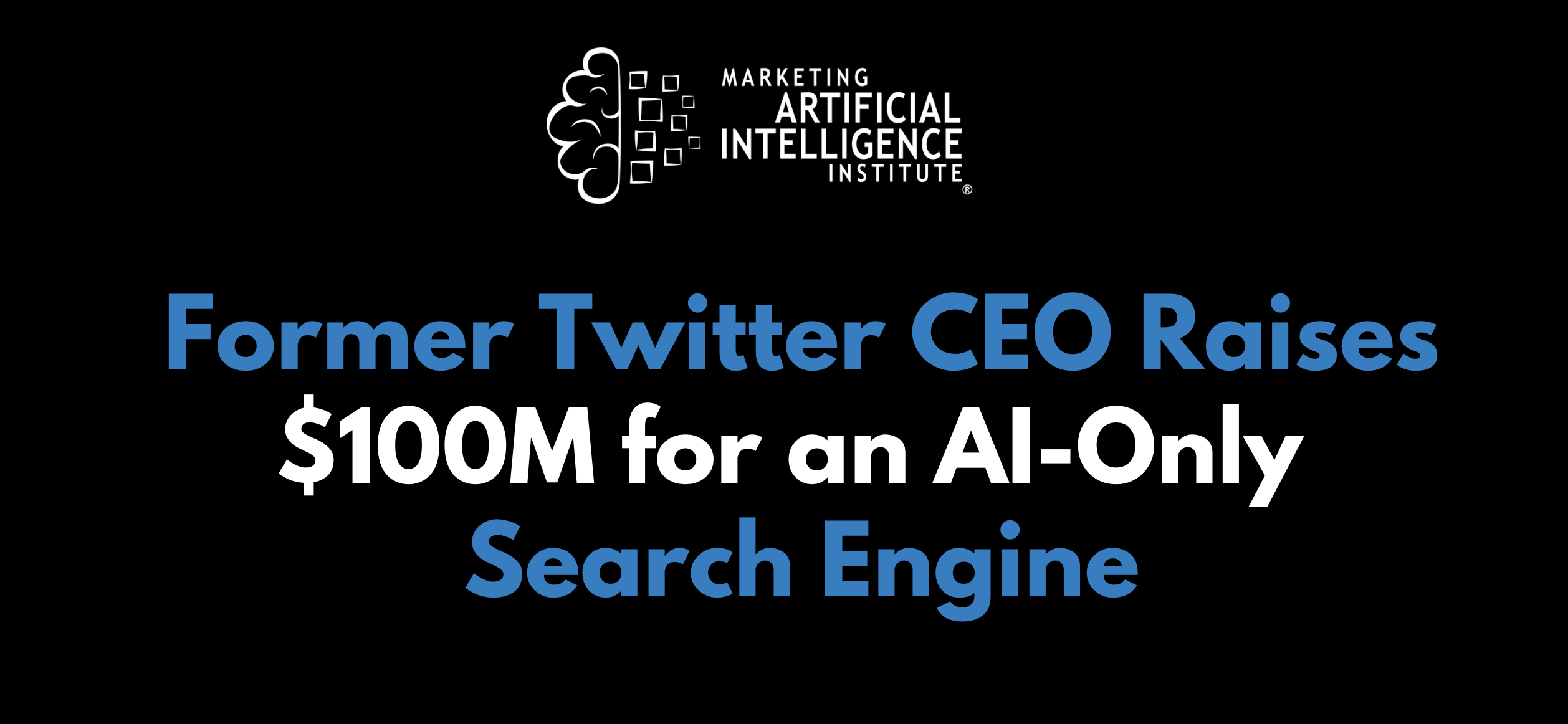Parag Agrawal just secured a $100 million Series A funding round for his new AI startup, Parallel Web Systems. Agrawal is the former CEO of Twitter (now X).
His two-year-old company, now valued at $740 million, isn't building another search engine for humans. Instead, it’s tackling a much newer problem: building web search infrastructure designed specifically for AI agents.
The move signals that AI agents are rapidly becoming the web's primary users. This means the internet's core infrastructure may need to be rebuilt to accommodate them.
To understand the implications, I discussed the news with Marketing AI Institute and SmarterX founder and CEO Paul Roetzer on Episode 180 of The Artificial Intelligence Show.
Betting Big on AI Agents
The funding round, co-led by Kleiner Perkins and Index Ventures, is notable not just because it involves a high-profile founder but because the amount raised is so large.
“That is not a common raise at a Series A,” Roetzer says. “That's a pretty significant number.”
He points out that this kind of money, from these top-tier investors, indicates that venture capital firms are actively "starting to make some bets as to what the future of the internet looks like."
This $100 million investment is a clear bet that the future is "agent-to-agent."
“I think everyone is starting to try and figure this out,” Roetzer says. “Companies like this are worth paying attention to because it's obviously sort of heading in that direction of trying to solve for: ‘What does the next version of the internet look like?’ and ‘How does it affect commerce and marketing and sales?’”
A Search Engine Tailored to AI Agents
Parallel’s core premise is that AI systems, like humans, need access to live, up-to-date information from the web to perform complex tasks. Enterprise customers are already using its APIs to power agents that write software code, analyze sales data, or assess insurance risks.
But traditional search engines, which rank links for humans to click, are inefficient for an AI agent.
Parallel’s system works differently. It returns "optimized content, or tokens, designed to feed directly into an AI models’ context window." The company says this improves accuracy, reduces AI hallucinations, and cuts operational costs.
A New Market for Web Content
The money raised will go toward product development and customer acquisition, but it's also earmarked for a more complex challenge: content access.
As AI web scraping has become more common, many publishers and platforms have locked their content behind paywalls and logins. Parallel’s solution is to use its capital to fund deals with online content owners and develop an open market mechanism.
This new economic model would, in theory, incentivize publishers to make their content accessible to AI systems, creating a stable and legal data source for the next generation of AI agents. Although he did not provide details on how this would work.
A Major Change for the Internet
What this means is that the internet is shifting from a place where humans browse to a place where autonomous AI agents actively search, analyze, and act.
Roetzer says this move highlights the "continued need for us to be thinking about what happens when agent-to-agent becomes the norm on the web."
It’s a future that includes agents, not humans, visiting your website, and AI agents interacting with chatbots.
If Parallel Web Systems makes this possible, a new kind of internet isn’t far away.
Mike Kaput
Mike Kaput is the Chief Content Officer at SmarterX and a leading voice on the application of AI in business. He is the co-author of Marketing Artificial Intelligence and co-host of The Artificial Intelligence Show podcast.


